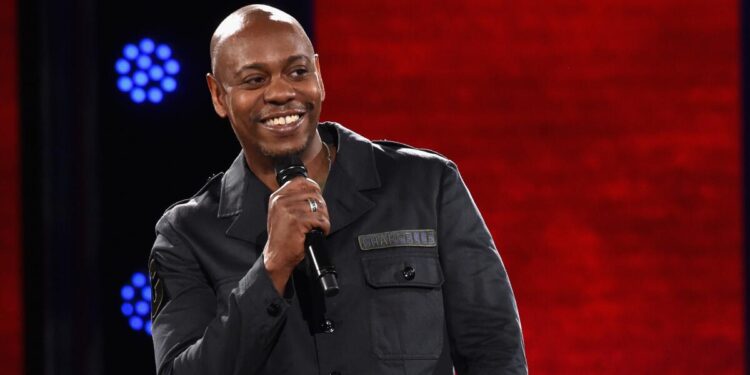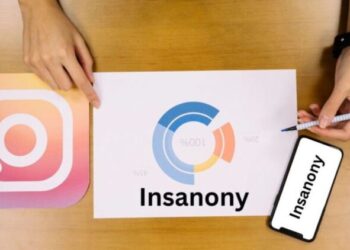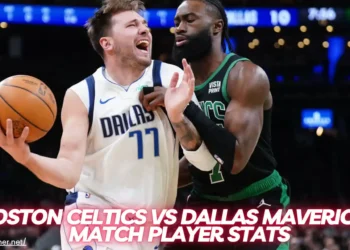Introduction: Why This Battle Still Matters in 2025
The clash between Dave Chappelle vs. Cancel Culture has become more than just a personal dispute—it’s now a symbol of a broader cultural debate in 2025. With each passing year, what started as a reaction to a few provocative jokes has evolved into a full-blown discourse on freedom of speech, audience accountability, and the ever-blurring lines between offensive content and honest commentary.
In the age of digital echo chambers and algorithm-driven outrage, Chappelle stands as both hero and villain—depending on whom you ask. His influence has stretched beyond comedy stages and into political conversations, college campuses, and courtrooms of public opinion. Yet despite protests, boycotts, and petitions, his voice remains strong and unapologetically raw.
Understanding the impact of this ongoing battle requires peeling back layers of social context, media influence, and cultural evolution. Because, let’s be honest—this isn’t just about jokes anymore.
The Role of Stand-Up Comedy in Shaping Cultural Narratives
Stand-up comedy has long been a mirror to society—an art form that reflects collective values, fears, hypocrisies, and hopes. In the case of Dave Chappelle vs. Cancel Culture, this mirror has turned into a battlefield. Chappelle’s comedic style has always leaned toward dissecting taboos, which places him at the crossroads of appreciation and outrage.
What makes stand-up such a potent cultural tool is its immediacy. Unlike films or TV shows, stand-up allows comedians to respond in real-time to current events. Chappelle, especially post-2020, has used this platform to respond to everything from police violence to trans rights controversies. His punchlines, while controversial, often force audiences to re-evaluate their comfort zones.
In many ways, Chappelle isn’t just performing—he’s provoking. And this provocation often highlights societal double standards. Why are certain jokes acceptable from some voices but not others? Why do we champion free speech in theory but punish it in practice? These are the very questions that comedians like Chappelle compel us to face. Learn more
Moreover, the role of stand-up is evolving. With the rise of streaming platforms and viral social media clips, a single joke can reach millions in hours. This amplification comes with responsibility—but also with risk. Chappelle embraces that risk, knowing full well that the same joke that wins him applause in one city might spark protests in another.
How Brands and Platforms Navigate the Cancel Culture Debate
The conflict between Dave Chappelle and cancel culture isn’t limited to audiences and performers—brands and platforms are caught in the crossfire. Companies like Netflix, Spotify, and YouTube have had to walk a fine line between championing creative freedom and avoiding backlash from concerned communities.
Netflix, for example, stood by Chappelle during the “The Closer” controversy, citing the importance of artistic expression. CEO Ted Sarandos issued a memo supporting the special while also acknowledging the pain felt by certain audiences. This dual stance is emblematic of how corporations now handle controversial figures: support with disclaimers.
Meanwhile, platforms such as TikTok and X (formerly Twitter) are forced to moderate content through both human and AI systems. Clips from Chappelle’s shows are frequently flagged or debated, leading to arguments about whether algorithms are capable of understanding satire or nuance. The irony? In trying to manage offense, platforms often amplify it through viral backlash.
In response, some brands have chosen neutrality—removing content entirely rather than risk reputation. Others try to profit from controversy, knowing that buzz (even negative) can drive clicks and views. This trend raises ethical questions: Should profitability dictate platform policy? Or should platforms be stewards of community standards, even if it means losing traffic?
Ultimately, the Dave Chappelle saga reveals a deeper truth—cancel culture doesn’t just impact individuals; it pressures institutions to either evolve or explain their values publicly.
Case Study: Audience Reactions in Different Countries
While cancel culture is often discussed as a Western phenomenon, international audiences interpret and react to Dave Chappelle’s content quite differently. His global tours and special releases show a fascinating trend: what sparks controversy in the U.S. might be met with laughter—or even admiration—elsewhere.
In countries like India, South Africa, and parts of Europe, Chappelle’s candid take on politics, race, and religion is often praised for its raw honesty. Audiences in these regions, accustomed to their own socio-political taboos, see Chappelle as someone who brings global issues to light with boldness. His jokes resonate, not just because they’re funny, but because they address universal truths wrapped in cultural specificity.
For example, during his 2023 international tour stop in Berlin, Chappelle received a standing ovation after tackling topics like immigration, American hypocrisy, and European identity. German media called the set “shocking but necessary.” Contrast this with reactions in some parts of the U.S., where the same set was labeled “inappropriate” and “insensitive.”
This cultural divide suggests a key insight: cancel culture is not monolithic. Different societies place varying degrees of emphasis on free speech, tradition, and political correctness. Chappelle, in navigating these global reactions, becomes a symbol of how content travels—and transforms—across borders.
As more comedians begin to globalize their material, they might look to Chappelle as both a warning and a guide. The line between criticism and censorship is thin—and it changes depending on where you stand.
Chappelle’s Legacy: Humor, Controversy, and Influence
Dave Chappelle’s rise to fame was fueled by a rare combination of unfiltered storytelling, racial satire, and sharp wit. From Chappelle’s Show to his Netflix specials, he has often tackled topics that others feared to touch: police brutality, race relations, LGBTQ+ politics, and freedom of speech.
But with boldness came backlash. Chappelle’s 2021 special “The Closer” ignited a firestorm that carried through the decade. Critics called it transphobic, while supporters defended it as truthful. Despite waves of online outrage, sold-out tours and multi-million-dollar contracts showed that audiences were still very much tuned in.
His impact isn’t just about laughter—it’s about resistance. In an era where brands often walk on eggshells, Chappelle doubles down, forcing viewers to confront uncomfortable truths. That defiance has made him a lightning rod but also a trailblazer for unfiltered comedy.
What Cancel Culture Looks Like in 2025
Cancel culture in 2025 has transformed into a more organized and monetized force. Influencer-led campaigns, decentralized social media platforms, and AI-driven “watchdog bots” now flag content faster than ever. The stakes are higher. One misstep can cost millions in ad revenue and destroy public reputation overnight.
However, this hyper-awareness has also led to cancel fatigue. Many audiences, especially Gen Z and late Millennials, have started questioning the long-term effectiveness of outrage. Has cancel culture become a tool for social justice—or a mechanism for mob control?
Interestingly, data from a 2024 Pew Research study shows that 57% of Americans now believe “cancellation” has become too quick to judge, while 68% still support holding celebrities accountable for harmful speech. This duality explains why someone like Chappelle can be both celebrated and condemned.
| Metric | Percentage |
| Support Free Speech in Comedy | 73% |
| Support Cancel Culture for Harmful Jokes | 68% |
| Believe Cancel Culture is Overused | 57% |
Comedy, Censorship & Social Media
In today’s world, comedy and censorship are inextricably linked. Platforms like X (formerly Twitter), TikTok, and YouTube now use moderation algorithms that can demonetize or suppress “sensitive” content within minutes. And comedians are adapting—or resisting.
Chappelle’s material often challenges these invisible rules. He knows that his jokes will likely get flagged, clipped out of context, or used as clickbait. Still, he persists. Why? Because for him—and many others—comedy isn’t just performance, it’s protest.
Take, for instance, his 2023 live show in Atlanta, where he addressed being deplatformed by several universities. He ended the set by saying, “If freedom of speech needs protection, then comedy is the first line of defense.” That quote went viral, amassing over 5 million likes on Instagram.
Who’s Winning? Public Sentiment & Platform Power
When we ask, “Who’s really winning?” in the Dave Chappelle vs. Cancel Culture saga, the answer depends on your metric. Financially? Chappelle is thriving. Publicly? He’s polarizing. Culturally? He’s unforgettable.
Netflix continues to renew his specials. Live performances sell out in minutes. And while some networks refuse to air his content, others offer him even bigger platforms.
At the same time, cancel culture has gained institutional power. Universities, media organizations, and brands now routinely consult diversity advisors before inviting controversial figures. And Chappelle remains a recurring “no-invite” on several campuses.
Yet in many ways, this conflict has strengthened his brand. He represents authenticity in a time of political correctness. Whether you agree with him or not, you can’t deny that Chappelle’s voice echoes louder than ever.
FAZIT: The Real Question Is Deeper Than Popularity
Ultimately, the Dave Chappelle vs. Cancel Culture debate isn’t about winning or losing. It’s about values—freedom vs. accountability, truth vs. sensitivity, comedy vs. control. As the world becomes increasingly polarized, we’ll continue to see figures like Chappelle walk the tightrope between expression and ethics.
What matters now is not whether Chappelle is canceled or celebrated—but what his story tells us about ourselves. About our limits, our tolerances, and our willingness to confront uncomfortable truths without silencing each other. Because if laughter really is the best medicine, then perhaps it’s time we learned how to take it without burning down the pharmacy.
FAQs
1. Is Dave Chappelle canceled in 2025?
No, despite some backlash, Chappelle continues to tour and release content on major platforms.
2. What is cancel culture?
Cancel culture is the practice of withdrawing support from public figures after they are perceived to have said or done something objectionable.
3. Why is Chappelle controversial?
His jokes often touch on sensitive topics like race, gender, and sexuality, which some consider offensive and others view as honest.
4. Does Gen Z support Chappelle?
Gen Z is split—many admire his fearlessness, while others criticize his insensitivity.

















